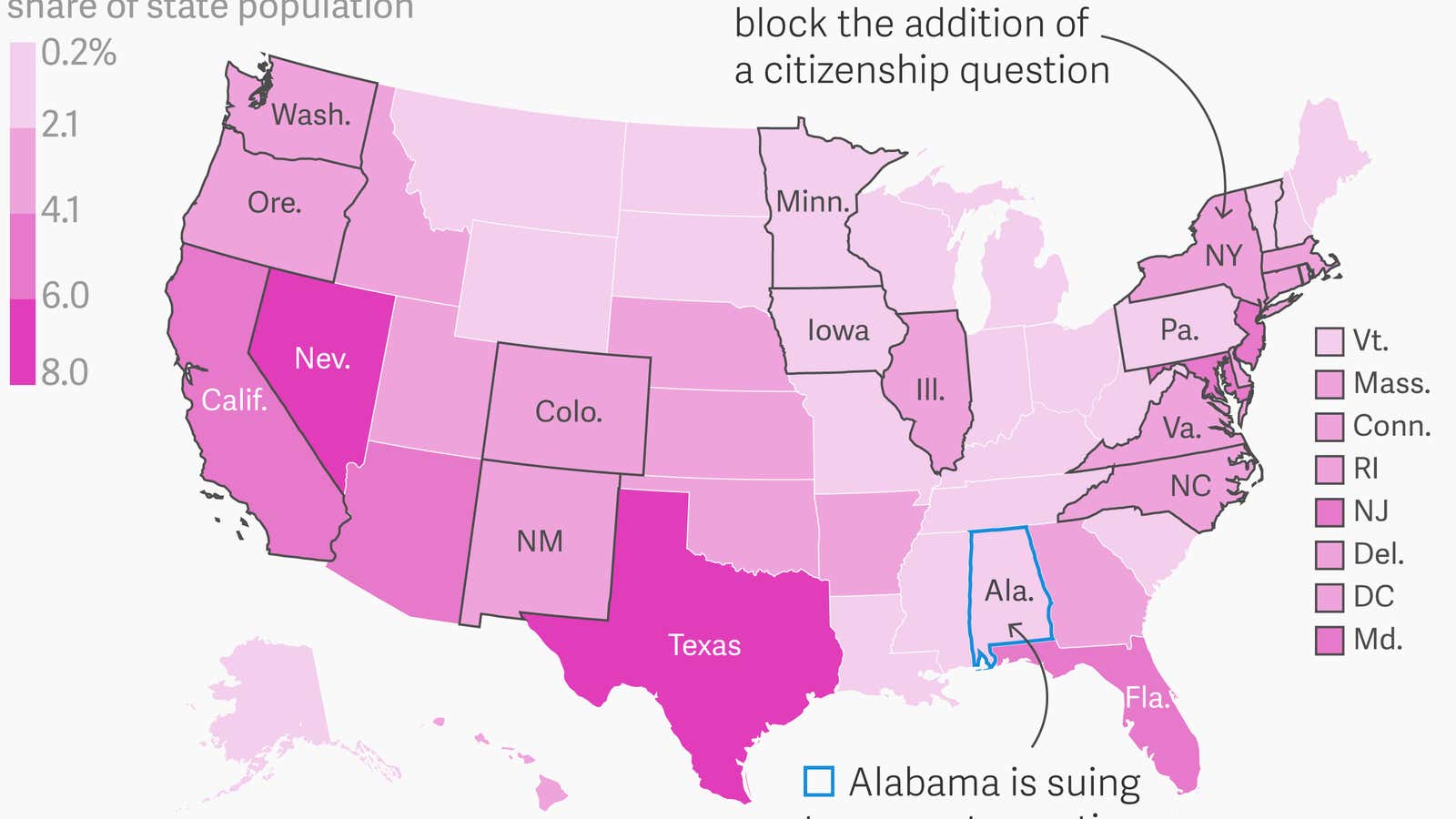When US Commerce secretary Wilbur Ross proposed to include a citizenship question in the 2020 census, 18 states filed a lawsuit to block it. The states argued that the new addition could make unauthorized immigrants less likely to take part in the census, leading to an erroneously lower US population count. Now, one state thinks it would be better not to count the group at all.
Alabama congressman Mo Brooks announced yesterday (May 22) that he and the state had jointly filed a lawsuit against the US Census Bureau and US Department of Commerce to force the agencies to exclude unauthorized immigrants in the 2020 census.
The 2020 census will later be used to allocate the number of congressional seats to each state, the number of electoral votes each state has in presidential elections, and the amount of money each state receives from the federal government. Brooks says the practice of counting unauthorized immigrants benefits states with large unauthorized immigrant populations and creates a disadvantage for US citizens in Alabama: “The difference in illegal alien population between states is dramatic… One state’s gain is another state’s loss.”
Pew Research Center estimates that unauthorized immigrants made up 3.5% of the US population in 2014. More than 43% of them were in just three states: California, Texas and Florida. About 6% of California’s population was estimated to be unauthorized immigrants. In Alabama, it was 1.3%.
While the lawsuit is certainly catching the attention of Americans, in 2016 the Supreme Court ruled unanimously that total population—including unauthorized immigrants—can be used when states redraw their legislative districts. Justice Ginsburg wrote in the decision: “As the Framers of the Constitution and the Fourteenth Amendment comprehended, representatives serve all residents, not just those eligible or registered to vote.” Nonetheless, the court didn’t explicitly forbid states from using other methods to draw congressional lines either—such as only counting eligible voters.
Correction: A previous version of the map included in this item omitted Colorado from the group of states suing to prevent the addition of a citizenship question to the 2020 census. It joined the lawsuit on May 1.
